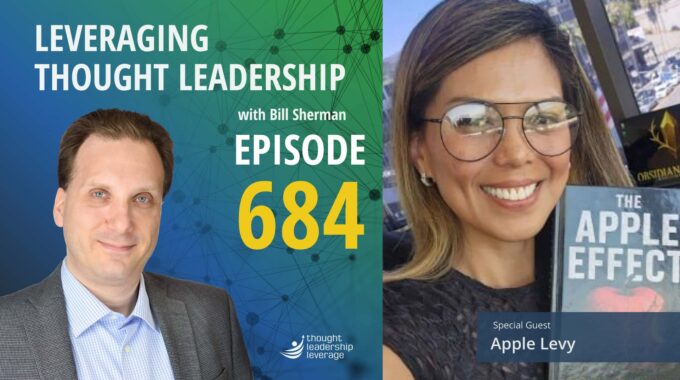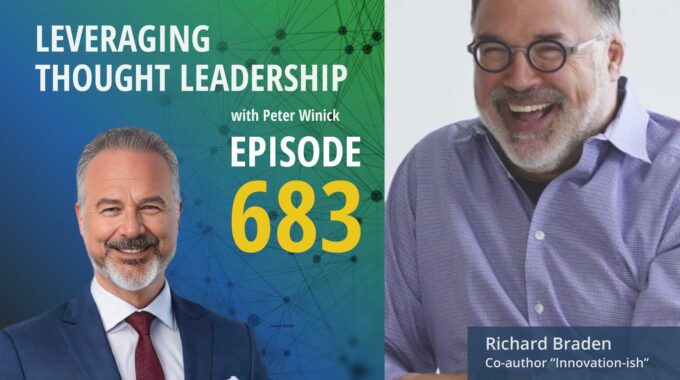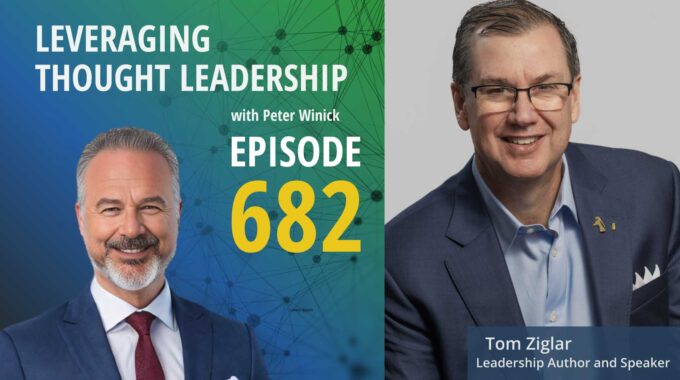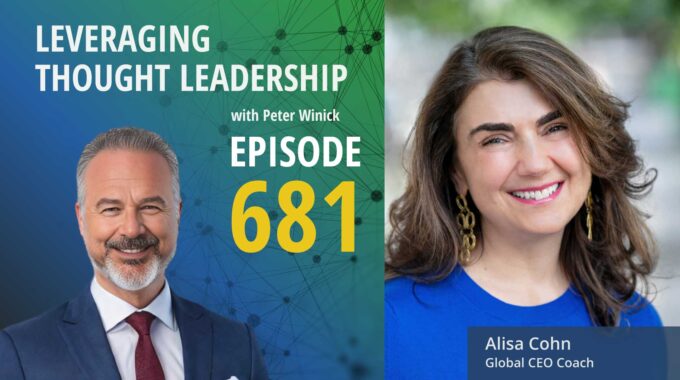A field-tested framework for leaders who want better margins, cleaner operations, and a stronger culture…
A Journey of Redemption and Global Impact | Cobe Williams
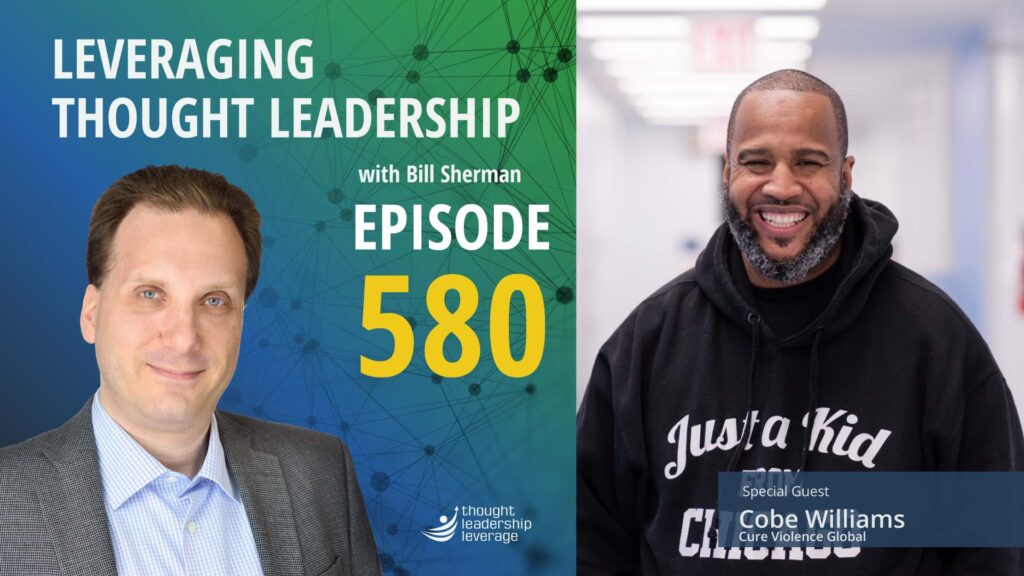
Transforming Lives and Communities with Cure Violence Global
A conversation with Cobe Williams about his transformative journey and helping to stop violence in his neighborhood and across the globe.
Bill Sherman hosts Cobe Williams, a pioneer in violence prevention. Cobe shares his journey from personal redemption to global impact. As Director of US Programs for Cure Violence Global, he uses epidemic control methods to halt violence in communities. His story is a powerful testament to transformation and hope. Cobe’s defining moment came in court, in restraints, when he embraced his son after a year and a half. This emotional reunion catalyzed his resolve to change his life and be there for his family. Today, Cobe leads violence prevention programs worldwide, from Chicago to Africa, transforming communities and inspiring change.
With almost two decades in the field, Cobe began as a “Violence Interrupter,” mediating conflicts in his neighborhood. His approach is deeply relational, meeting people where they are, and spreading the message that disagreements don’t have to escalate to violence. His work involves intense listening, strategic mediation, and leveraging community relationships to prevent retaliation and promote peace.
Cobe also discusses his upcoming book, “Interrupting Violence: One Man’s Journey to Heal the Streets and Redeem Himself,” co-authored with Josh Gryniewicz. The book aims to inspire others by sharing Cobe’s personal journey and the lessons he’s learned in violence prevention.
Cure Violence Global’s success attracts mayors, health departments, and private funders seeking proven methods to reduce violence. Cobe emphasizes the importance of community credibility and relationship-building in their programs, ensuring local leaders are respected and effective.
Through his story, Cobe hopes to show that it’s never too late to change, and redemption is possible for everyone. His work and message aim to foster understanding, reduce judgment, and inspire others to share their stories and seek help.
Three Key Takeaways:
Transformative Power of Personal Redemption: Cobe Williams’ journey from a courtroom revelation to leading global violence prevention efforts illustrates how personal transformation can drive impactful change. His story emphasizes that it’s never too late to change and that redemption is possible for everyone.
Community-Centric Violence Prevention: Cure Violence Global’s approach leverages deep community relationships and epidemic control methods to interrupt and prevent violence. By training and supporting local leaders who are respected and credible within their communities, the program effectively reduces shootings and killings.
Inspiring Others Through Storytelling: Cobe’s upcoming book, “Interrupting Violence: One Man’s Journey to Heal the Streets and Redeem Himself,” aims to motivate and inspire others. By sharing his personal experiences and the challenges he faced, he hopes to encourage people to understand the roots of violence, reduce judgment, and inspire others to seek help and share their stories.
Transcript
Bill Sherman There are moments of transformation where we see the world in a new way, and it causes us to take action. These moments are sometimes quiet and sometimes highly emotionally charged. Today, I speak with Koby Williams, the director of U.S. programing for Cure Violence Global. In this episode, you’ll hear how a powerful moment in a courtroom with his young son changed the trajectory of Cobe’s life. It also led him to create impact in communities around the world. And now, as an author practicing thought leadership. If you want to explore impacting the lives through ideas, especially in high stakes environments, Cobe Williams reveals how he works with clarity, purpose and humility. I’m Bill Sherman and you’re listening to Leveraging Thought Leadership. Ready? Let’s begin. Welcome to the show, Cobe.
Cobe Williams Thank you for having me.
Bill Sherman So. I want to dive in in a moment, which for you was transformative, but really, in my mind, serves as sort of the crux of your work of thought leadership. Right? It is this story that helped me understand why and what you do. And so tell me about the moment with your son. Where were you? And tell that story.
Cobe Williams Why so? I have a son named LaToya Williams, and. I remember years ago, I was locked up. I was in custody. I was going to quit. So as I’m coming up the court to the, you know, to like the back shackled up in handcuffs, I’ll let you shut up. My son. My mother, my sister and my mother. They all came to court for me. So my son, I get to be about two years old. So as I’m coming from front to back, I see my son and they probably year and a half ass up. So when I’m coming from the back. Get into courtroom. I looked over there at my family because that’s the first thing you know when you come back from going to court. Looked out at my family and my son looked at me and I said, dad, dad, dad, dad. He’s like, daddy, there’s a. And he ran to me. So as he lay it to me, the judge must have realized he could tell that we and see each other so long. I say, so we could have been three. You know what I’m saying? Somewhere really young, you know, real young. And the judge was to say that since that. So he told the baler and I couldn’t believe it. Just told the bandit. Take the handcuffs out for him. You know, take the hair cubs out for me. So as he took the handcuffs off me and all that, he gave me permission to embrace my son. So I was so happy. You know what I’d say? Just embrace my son. So me and my son, we look at each other. I’m hugging up for a minute. I love you, I miss you, hug me. You know we in Ronald. We embracing each other in the courtroom, in front of everybody, right?
Bill Sherman But in that moment, it’s probably just you and him. Room. Yeah. Together. Yeah. The whole world goes away.
Cobe Williams Yeah. Yes. So I know I’m defending him. My case. And I know I want for you to go home. I didn’t know that. So I know often and go back to the back home. So my son go see what your mama. What your mama calling you all the time. She won’t call him because I know it’s time to go there. So he wants to see what’s mama called. See? Yeah, we know that with his mother, but he still look in my direction, and he sees me walking, you know, walked in our family, and he just broke down in front of the whole courtroom like, oh, my dear, I want my did I want my daddy. So I’m looking at him and I’m just got so emotional right there. Tea is coming down my face. I’m getting so emotional. Like, man, man, I want my son. I’ll need to be my son would be my son. So I’m trying to hurry up and clear my face, all right? Because I know I’m going to go back to lockup. And you don’t want to be emotional until you feel like me. Your my whole thing was I was hoping no one said anything to me. Crazy going back like, oh, you a crybaby. You know, a person could say that any day because I was gonna lose my cool, right? But even from now, most people probably saw what happened. Because at this time. You know, you could see people from jail on the screen, so they probably saw what took place. They could. So you know what I’m saying? What took place on the screen before you went to court, you know, in the back sometimes they have certain courthouses here back then, had TV cameras and all that to see. So I broke down. So right there it’s like, man, I got to really be there for my son. I got to get out. I got to do the right thing. It’s a it’s a must. I can’t do my son like that because I remember and I still have pictures of my father going to see my father in prison when I was, you know, just like my son. And I remember them pictures right now. I still have these pictures and all that. So I’m like, man, I got to do right. But I broke down and I was so emotional and just like told am like man. It hurt me, man.
Bill Sherman I can’t even imagine. And I want to thank you for sharing. What when you shared it with me earlier in conversation. An incredibly powerful moment. And from what you said that led you on a journey? Yes. To where you are today. So what I want to ask you is let’s flash forward. Tell me what you do today as well as introduce the book. Okay.
Cobe Williams So what I do today, like I say, I’m the director of the U.S. program for Cure Violence Global. So right now what I do, I set up programs all over the world. CVI programs, right. Community intervention programs, violence prevention programs all over the world to help people stop shooting and killing each other. Right? Right. You know, I’ve been doing this work for close to 20 years. I started off doing it in my community first on the South Side of Chicago. Now they gave me a promotion. I’m the director of the U.S. program, so I help set programs all over Trinidad, Africa. Jamaica, Baltimore, New York, D.C., Saint Louis, you name it. I’ll probably been there in these cities. So I have set up some programs all over because. When you got good programs. I hear people doing great work. And this is Cobe’s all around the world, right? When I say Cobe’s around the world. I’m saying this people who’ve been affected by violence. Now K home for privacy and doing the right thing. So I’m just blessed and grateful to continue to do what I’m doing because I helped took so much for my community. So I really just want to give back to my community. So. I want my story to always inspire other people, right? I know it’s so obvious in the documentary I call The Interrupters, and I remember so many people coming out to me. Cobe, you really inspires me. I mean, you gave me hope. Me, Cobe, you let me know. It’s okay. Me and Cobe, you teach me not to give up on my life. So I want to write a book and all that. And my coauthor named Josh. I called him Josh Ji. Josh. Man. I’ve been talking for this about ten years. Like, man, need to get a book out there, need to get a book out. They need to write that. So me, I’m took that journey on and started writing a book in like I’m so happy with it because. I want to use my platform to let people know it’s never too late to change. You’re not alone. You got to keep pushing. But the most important thing I want people to know. Redemption is real. It ain’t how you start. It’s how you finish.
Bill Sherman There’s so much there. I’m going to have to choose one question to keep diving in on some of this. Thank you Cobe. So. I want to stay on the concept of redemption, right? And it is a powerful idea as an idea, but it also can be one that feels out of reach to a lot of people. And when I think about thought leadership, it’s about showing someone a possibility or an opportunity that’s around the corner that they might not see and showing them the first step of how they get there. Right. So we talked a little bit about the Violence Interruption Program. Can you talk about the work that you do and have done in the community, working with people who are well bent on violence? Right. And how do you change someone’s mind and make them open to the possibility of redemption, when they may be focused on revenge?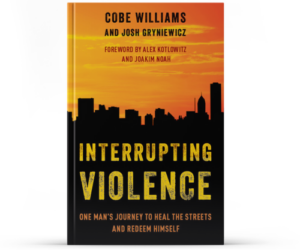
Cobe Williams Right. So the work I did in the community, like I said, when I first started doing this work, my job title was a violence interrupter. And so a interrupter was more like a fire. Fire. And so building burning down is blazing fire. Flame will come and put out the fire. The fireman.
Bill Sherman Firefighter? Yeah.
Cobe Williams I didn’t fight. So my job violence is up. Erupting in the community. Shooting and killing is going on. People get shot. People get killed. My job was to get out there. The mediate conflicts focus on stopping the shooting and killing on the frontier before it happened. Once it happened, my job was to stop retaliations. But you gotta have the relationships in the community. So you got to have the relationships. You got the beef from the community. But it’s important to meet people where they are without.
Bill Sherman What does that look like? Yeah. What does that look like?
Cobe Williams I’m saying, like I say, I come from that life. I’ve walked that life. A lot of my best friends walk that life. A lot of my friends in prison right now, a lot of my friends got killed. They kids got killed. So had it looked like I’m being out there every day walking in my area where I’m from. Born and raised in the neighborhood. I’m slum. I walk in the area every day. I ran in the area every day and I’m just building relationships. I’m just getting to know people who I know, do know and people who I don’t know. And I’m just praying no less. Just like. Maybe it’s okay. Is okay for us to have disagreements, right? But we do not got to shoot and kill each other cause we had a disagreement. So I’m meeting them where they are. With. These take place in the community where people want to hurt each other. I’m intervening right then and right. I’m. It’s an intervening, and I’m providing them my opportunity. To talk it through. Talk it through in a way where I’m just facilitating it, but I’m getting them a platform like me. Yeah. All right. I hear what you saying. I hear what you said. You got to listen to both parties or multiple parties. You got to listen to them on a regular be like, man, guess what? Understand? What you going to understand. What you going to do? But wait. Can we meet? What’s the common ground where we could meet to make all this go away? And the biggest thing you got to always remember when you bring bringing people together, you facilitate conflict resolution, all that. How much damage have been done. Because it gets a little tricky. When somebody just shot at you, but they didn’t shoot you. You know is it get a little tricky. So you got to be able to. Hear what they say here, where they coming from, and try to understand them, but not judging them. Not tell him he wrong. He right. Just me know where they at and give them that. And what thing is most important when situations happen or before they happen? We always provide them an opportunity to save face. And when I say save face, right. Sometimes people do what they flea is expect them to do, or they just want to do this and do that. So they could put it on this man, this Cobe ain’t come over your men option to do this and do that. Okay. I’m glad I was. You wouldn’t do that. So you don’t want to push nobody in no corner because you can never estimate anybody. You know anybody if they feel like they’ve been threatened or they feel like they’ve been through this, have been through that. They were back out in some type of way. So it’s important just to meet these young people. What is it without judging them?
Bill Sherman I like that idea of meet where they are without judging, recognizing they may have. Like you said, if someone’s been shot at, they probably got a mix of emotions going through anger, fear, you know, worry, you know, a whole bunch of things and you’ve got to find a way to talk with them. And connect with them so that they hear you. So my question is, how do you get heard when someone’s got so much noise going through their heads?
Cobe Williams So it’s all about you approach to please. Yeah. And your approach is this. You got to do a lot of listening. Not a lot of talking. So will you approach it? I mean, you go in these situations. I’ve been in midst thousands of these situations. You go in there and you listen to them like, okay, you validate, you hear them, you acknowledge, you hear them. You listen to. I see what you say. But guess what? I hear what you’re saying, man. Let’s go get something to eat. Let’s go to a basketball game. Let’s go hang out downtown for a minute. You removing them? From the area from where they at. You remember that for a location. This led me. I said and told me all. What’s your play? And his work is all about psychology to build. Well.
Bill Sherman Yeah.
Cobe Williams In this work, you got to be thinking on your feet at all times. So a lot of times it’s like, okay, yeah, we’ll go to the new location and all that. Constantly spending time with them, getting to know it all the time. What you do once you’ve changed, a man said, right. You change in. A bad man said, right, and you get them to think a little more right? But guess what? Why are you getting them to think you got your other coworkers still talking to the different groups in the community who they beefing with? One began with some with a friend. So it’s like you working from every angle. And then people see, like me, he really care about me. He bloody well could meet me. He called in me, I’m checking in on him and all that. So it’s all about relationships and all that coming out. Like you cannot tell them what to do. You meet them where they are.
Bill Sherman And you get them a couple things. One away from whatever environment they’re in. Right. And almost away from. Sometimes I think of it as social media coverage or internet coverage as well. People who aren’t directly involved would say, did you see what they said? And they’re easy, eager to fan the flames, but it’s not them, right? They’re almost like trying to push you to do something stupid. And so getting people to slow down, to think. Yeah. And eventually be able to listen. They can hear a different idea than the one that everybody else is sort of banging, or the one they think other people expect them to.
Cobe Williams Yes, because most people. They want to be told down. A lot of times what they still care how they fly is see how they fly his knee. So it’s like it’s a lot of situation where I’ve been able to talk people down, but when they get around, they freeze, they get to smoke in the joint or whatever. Like me, man, you will take that man. He telling everybody he did is he treated you? He did this and that. So a lot of times you have to remember they dealing with it. And we talk about we talk about people who man they all the way develop all the way. Mature. You know what I’m saying?
Bill Sherman Sometimes because they can be young. Yeah.
Cobe Williams Yeah, I could be. A lot of these people are young, so I understand that. So would you be able to do that and take them from different environments, taking them other places and spend time with old men like me, bro. Guess what, man? You have to make sense. I mean, I’d be like, bro. And you got to know something, little brother man. You already just told me. Man is hard on your mom. Your father ain’t around. You just told me your mom was struggling to pay the bills. You just told me this, and you told me that. Say, bro. If you leave me, it’s still going to be hard on your mama. Hard it is now. Cause she ain’t got no body like she got you. You’re not broadening your muscles, the knee tube. They look up to you, bro, you know? So let’s think about it. I’m only trying to tell you what to do. Think about that. So when you make sense out of this and get them to think.
Bill Sherman It makes.
Cobe Williams It. And you know what? Guess what? We’re going to have a big barbecue. We giving out toys. We giving out this weekend out there, man. Bring you on the system. Beating on the brother tool. So you showing that you care about you changing his mindset. And you. You’re walking him through. You walk him through steps.
Bill Sherman Taken him step by step into a different possibility and one where it becomes real. And I think one of the things that I also hear as well. Is. You can look them in the eye and say, I’ve been where you’ve been. I felt what you felt and. I did tanning. Right, right.
Cobe Williams Yeah. And even with that bill. No, that’s definitely a good concept. But sometimes. You got to watch state body language to see how they receive receiving that. Because sometimes if they told it to the wrong person. Say I’m saying that. Sometimes people could come off like they glorifying it, right? Like they worked it. So you got to watch that body language. And the tone you use. You don’t say and you have to think about.
Bill Sherman You have to almost mirror where they’re at and some place. Right?
Cobe Williams Yeah, yeah. Because you got to be thinking like the good like man. Sometimes I’ll watch the words I use and I’ll see how far they let me go. But the number one thing is you got to be thinking on your feet at all times.
Bill Sherman If you’re enjoying this episode of Leveraging Thought Leadership, please make sure to subscribe. If you’d like to help spread the word about our podcast. Please leave a five-star review at ratethispodcast.com/ltl and share it with your friends. We’re available on Apple Podcasts and on all major listening apps as well as thought leadership, leverage, dot com forward slash podcasts.
Bill Sherman And I want to now jump from thinking on your feet at all times in that moment where you’re talking with someone who’s contemplating violence to the work that you’re doing today across, you know, the North America, as well as then writing a book. You’re thinking on your feet at a different level now.
Cobe Williams Yes, because I want the world to know I want everybody. No violence affects everybody. Violence is making our country sick. So what’s important and is people. Not is people like me. It’s a lot of people like me. Who? Made choices in a life that ended up in prison. And in this, people like me, the one who correct in a lot of this madness in the street because we have relationships. So I want people that know what I’m doing on the global side is like. Look where I started though, and look where I met. It was no easy task to get where I’m at and I’m still. Doing everything I can to really get back though. So it feels great when you have people all over the world who doing this type of work and they all city. And they all area where they grew up it and they own state. It’s just it’s just a great fill it. So for me to do this on a big scale like that, it’s just truly a blessing. I going to sit up and say, I go to church all the time. I got to say, I pray all the time, but man. I feel like God is using me. You know what I’m saying? The. Really? Yeah. Back to the people and let them know that you’re not alone. Guess what? I walked in. A lot of people, these people shoot. But guess what? Look what I’m doing now. So to really get the word out there on a large scale like that, that’s great. It’s great.
Bill Sherman So. When you’re working in a new community. You mentioned like York, Saint Louis, you know. How do you find or what do you look for in someone? Where you look and you go, they’re going to be good at this work. What do you use? What do you see where you’re like? They get it and they’re going to be amazing.
Cobe Williams So keep in mind. So like I say, I work for the organization Cure Violence Global. We call this. And you could check it out on the website CVG.org. What people reach out to us because we got over 20 some evaluations saying, when you implement this model, the right weight, you go see reduction, oh, shoot, not kill it. So the mail reach out to us private funders, reach out to us to, help the department reach out to us, local, county, you know, local county governments, you know, just different people reach out. So when people reach out. Yes. They made y’all got a lot of. So what? We’ll do it. We’re still having time to bring people from the community that has it’s people in the community who doing violence prevention already what it is. And we help educate people and show them a unique way of doing it.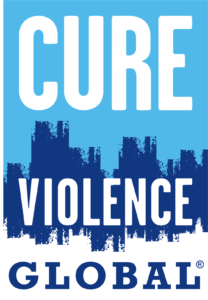
Bill Sherman And give them tools.
Cobe Williams We give them the tools to operate in a way like, whoa, like, man, I see, I get it now. And that’s saying people ain’t doing good work out there, but we provide tools and all that. That is work. And it’s been evaluated over 20 times saying the cure violence model work.
Bill Sherman But I want to come back to the question for the individual.
Cobe Williams Oh, yes.
Bill Sherman Yes. Yeah. Is it? Yeah. What makes someone really good at this work? What characteristics are you looking for? For someone to be standout.
Cobe Williams So first the first step, what we do is say when people bring all type of people to the table, do this work. We called it a prescreen at first before they go to a hand panel. Yeah. Priest. Great. So some of the crowd races, we look at people to do this work. Guess what? Like, this is what we look for. And I’m glad you asked that question. That’s a great question. So, Bill, if I’m in Inglewood, right, I’m the example where I’m born and raised. So if I’m saying I’m credible, I’m suitable and I know the community. So one of the biggest things I always look for when I go to other cities, and I did it here. All of you for me. Okay, let’s go out in the community. I want to see how the community responds to you and I. So if you go on in the community with this. Right. Did you going in a community? In the community. Oh, what’s up? Cobe? Camille. Mary, how are you doing? It’s people. Randy. Kyle’s blown away. Cobe. Cobe. Cobe. If people responded to you and gravitate to you. They know you? Somebody, though?
Bill Sherman Yep.
Cobe Williams You know what I’m saying? Like, hey, come here. Or every corner you go, you can’t stop. They can’t me they talking to you. They doing all right.
Bill Sherman You can’t walk a block without five conversations.
Cobe Williams So that’s a sign right there okay. People respect you that to people? No. You. So now that’s one piece of it. Say if I’m saying, yeah, man, I’m a good worker, man, I got relationships. I’ll let you do bring. So we work I’m using example is on 725. That’s a you beat at all that you know. Yes. What. Bring 1520. Get 1015 rich young people in the commute here to the office. You could produce that. That showed that you really got relationships with them. If you can’t do that, then that’s a red flag for me. You talking about you got the neighborhood on lock. You know everybody, but you can’t produce these people. You don’t. So it’s a lot of. Get rid. Ain’t your name got to be credible? I mean, when I say you got to be really a credible messenger. Why people rock with you, though. Why would while you could call people up and hear you out and different things like that. Oh, you could walk in the neighborhood and you could do this and you could do that. You could put a barbecue or cookout together in this neighborhood, say this one of the roughest neighborhoods. Nobody want to be out. Yeah, I’m like.
Bill Sherman But they’re going to come out because you’re putting it out.
Cobe Williams And always remember this. Everybody got these organizations and all this in it. That’s great. But people buy into the individual. Not the organization right away. But it’s my job to help them back to my coworkers and organizations on a big scale. But they back to the individual.
Bill Sherman Well. And I want to underline that. Right. Because if you tell someone, hey, I’ve got an idea, here’s three tools and 12 steps that you can use. You engage one part of their mind, right? But if you say. This is something that I care about. I’m here and I’m committed to. And you know me. That’s an entirely different message. And people listen different between the head and heart, right?
Cobe Williams People listen to people they know.
Bill Sherman Yeah.
Cobe Williams What? It got to be the right person. Don’t guess what. It got to be the right messenger. If you’re a messenger, you always trying to tell them down. It told down on lips and it look down on them. Man, you ain’t going to be none. You do this and that. If you judging them at target, download them on. Listen to you. But like I say, if you mean know what it. Mean, I guess the miracle we walked that night. Look what I did. Give it back. You have to walk the walk. People do what you say. They look at what you do and. You’re sober.
Bill Sherman So let’s talk a little bit about what you are doing right now. You mentioned the book. I want to talk about the book. Tell me about your experience one. Did you ever think you were going to write a book again? You talked about. I think it’s Josh, your coauthor.
Cobe Williams Yes. John.
Bill Sherman Did you. Were you pushing him? Did he push you? Tell me sort of the origin story of the book.
Cobe Williams So I met with Josh. Because he used to be the communications director for Cure Virus Global.
Bill Sherman Okay.
Cobe Williams So when the interrupters came out, he has to want help setting it up. We don’t. Screen is all over the world with the interruptus. And Josh was talking about me writing a book where I was to write a book. He has like, May that be a good that he is going to write a book. And when we first started talking about it. He is going to be like a ghost writer for me. And I saw how he was pushing me more. So we are pushing each other. I say, man, you might as well be a part of all the way.
Bill Sherman Now,
Cobe Williams So we just start putting together. I never think I will write a book. Later on. Once we start talking about all they are, okay and all that, but nice here. Interrupting violence. That’s the name of the book. It’s a must see read. And I got two of the best people I wanted to do the For the Lonely Alice kind of with. Became a best seller. Who wrote the book There are No Children Here. He has a part in making The Interrupters. Documentary and my good friend, my brother Joakim Noah. You play with the Chicago Bulls, the Knicks, Memphis Clippers and all them they did for it. What? I want to book this by you, everybody. I want you all to spread the word about the book. But I really want y’all to listen. Listen to the words that’s in a book because it’s a lot of skills. It’s about mediation skills and all that. It talks about the wants it eternities men joking doing right now in Chicago with 2828 violence prevention organizations. So I talk about a lot of different T. And it talked about my life story. You know, it talked about. How it started. How was blowing up? I went down the stairway. And now I’m end up this way. I ain’t going to say I went down the wrong way. Because if I ain’t go that way, it wont to shake me up who I am today, right? So I don’t regret. No, but. It talk about a lot of trials and tribulations I had to face dealing with my father, my mother, and draw to talk about a lot of things.
Bill Sherman So. What is it you hope to accomplish for the book? And there’s two parts to this question for the book out in the world and the people who read it. And then on a personal level. Writing a book is a big project. What do you hope for yourself?
Cobe Williams So it’s a few things. So. Output of composition. I believe the biggest thing is. I want to motivate people and inspire people. But when I say motivating. I want you to know, man, it is too late. To get it together. I’m going to make you like they. Keep going, keep going. Don’t let nobody tell you. Can’t we? And when I say we don’t let nobody tell you. You can’t do this. You can’t do that. So I want to give you some motivation. I want to inspire people to talk about the baby, to talk about. They story because guess what? Stories that we share. Personal stories, not just write long story. Personal story. Share it to help somebody else and what they going through when they leave. It helps somebody else want to do this and do better for these self. So you provide tools to other people. So that piece but on a larger scale. I mean, people don’t always know me. Stop judging people when you don’t know what they bend to or what they going through. Try to be more understanding. How to understand like man is real now here. Try to understand violence. Really affect people. Child. Understand. A lot of these brothers and sisters like myself, we’ve been as both exposed to violence as an early age, a lot of us traumatized with stuff. So just try to be more understanding and just know people just don’t act out. Just act up and act out for attitude. They really be calling for help. They really need help.
Bill Sherman I paused, because I respect the power of what you just said, Cobe. And it’s one of the reasons why I’m so happy to have you as guest. You’re doing incredible work on changing minds. You’re doing the work of thought leadership. Writing a book is a huge step. But changing minds in the moment when somewhat is heated, when someone is considering violence and showing them another way that takes courage, that takes passion and its absolute belief in people to make choices different then impulse. And that’s the heart of all leadership work in my mind. And I want to thank you for an amazing conversation. You have. Really broad heart, fire and soul to this table today, and I appreciate.
Cobe Williams Thank you. Bill. Like I say, thank you for having me. And. When the book come out or whatever, if anything, I could do down the line to come back to this show, the show, or do anything. I just want to. The wound card. While I’m on this hour, I want to help the people and understand what people are going through every day. I know it ain’t no easy task sometimes and I know times get difficult. Do know different times get difficult. But guess what? Not to give up.
Bill Sherman And I think we’ll leave it there because I have nothing further to say. Kobie Williams, thank you. Thank you very much.
Cobe Williams Thank you. Appreciate you.
Bill Sherman Okay. You’ve made it to the end of the episode, and that means you’re probably someone deeply interested in thought leadership. Want to learn even more? Here are three recommendations. First, check out the back catalog of our podcast episodes. There are a lot of great conversations with people at the top of their game, and thought leadership, as well as just starting out. Second, subscribe to our newsletter that talks about the business of thought leadership. And finally, feel free to reach out to me. My day job is helping people with big insights. Take them to scale through the practice of thought leadership. Maybe you’re looking for strategy, or maybe you want to polish up your ideas or even create new products and offerings. I’d love to chat with you. Thanks for listening.


